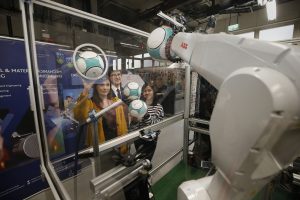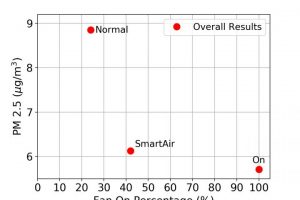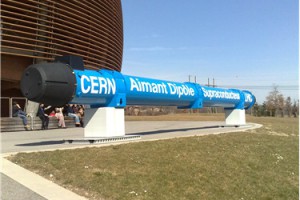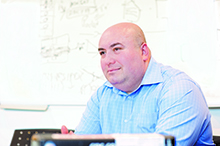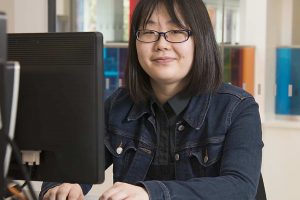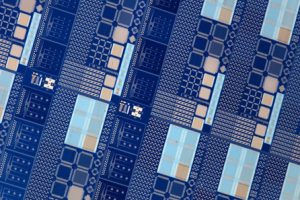Researchers at the University of Manchester have identified dihydrolevogucosenone, a non toxic material which is less expensive than conventional conductive inks. It is a sustainable material that provides higher concentrations and conductivity compared with graphene ink and is lower in cost as it does not rely on metal nanoparticles for electrical conductivity in printed electronics. Printed conductive inks are being developed for transistors, sensors, antennae, ...
University Electronics
The latest electronics news from UK universities
Putting the boot into Industry 4.0 education
Students in the School of Mechanical and Materials Engineering at University College Dublin can learn production technologies for Industry 4.0, or the smart factory, with hands-on experience via an automated factory demonstration unit, donated by Maxim Integrated Products. The football factory demo was popular at exhibitions around Europe, where it was used to showcase the principles of intelligent, automated production ...
US researchers turn to Raspberry Pi for clean air research
The University of Utah turned to Raspberry Pis when it need to equip four homes with smart sensing for clean air research. The Pis controlled the heating, ventilation, and air conditioning (HVAC) system in each house, based on data from three off-the-shelf wireless particulate pollution sensors added to each house, two inside rooms and one under cover outside. “With specialised ...
University of Cambridge researchers say machine learning is key to self-driving car
A Cambridge-based start-up believes machine learning software is the key to autonomous vehicles and Wayve is developing machine learning algorithms for autonomous vehicles. Wayve, which includes the chief scientist at Uber amongst its investors, believes the industry has been doing too much hand-engineering and too little machine learning. The firm is hiring for positions in its Cambridge-based headquarters. Wayve Co-Founder ...
UK scientists work on advanced accelerator at CERN
Engineers from the UK-based Cockcroft Institute claim to have made discoveries that could improve the design of next generation particle accelerators. Working closely with colleagues from around the world at CERN, the North West England based team has demonstrated that it is possible to create head-on collisions of proton beams using a crab-like motion. Work at the centre on plasma ...
Queen’s Belfast creates cyber security lab for local community
Queen’s University Belfast is investing £500k in a cyber security research lab at the Centre for Secure Information Technologies (CSIT). An aim of the facility is to work with global companies, start-ups and SMEs to form a strong response to cyber security attacks. The CSIT Test lab includes a high-speed network interconnected via a multi-gigabit optical fibre to the public ...
Siemens creates big data skills lab at Newcastle University
Boosting the digital skills of UK students is the remit of an on-going collaboration between Siemens and Newcastle University. The University this week saw the opening of the MindSphere Lab which will provide students with access to data from a number of projects across sectors including infrastructure, manufacturing, water and energy. Professor John Fitzgerald, Head of Newcastle University’s School of ...
Belfast student develops big data analysis to detect fraud
A student at Queen’s University Belfast has developed software which can help detect insurance fraud.
UK starts £11m project to revolutionise electronics
Three UK universities are to take part in a £11m programme for the development of nanotechnology for electronics. Imperial College London and the Universities of Southampton and Manchester, will work with industrial partners on the project to replace traditional transistors with memristors as the basis of electronic circuits. Today all ICs are built from vast numbers of transistors (electronic switches). ...
Millimetre-wave research lab at Queen’s University Belfast gets Keysight testers
A new millimetre-wave research lab at Queen’s University Belfast has been equipped by test system supplier Keysight Technologies. The lab, which can accommodate 60 researchers, students and engineers, is located in the Centre for Wireless Innovation at the University’s Institute of Electronics, Communications and Information Technology (ECIT). Professor Vincent Fusco, Chief Technical Officer of ECIT and leader of microwave research at ...
 Electronics Weekly Electronics Design & Components Tech News
Electronics Weekly Electronics Design & Components Tech News

